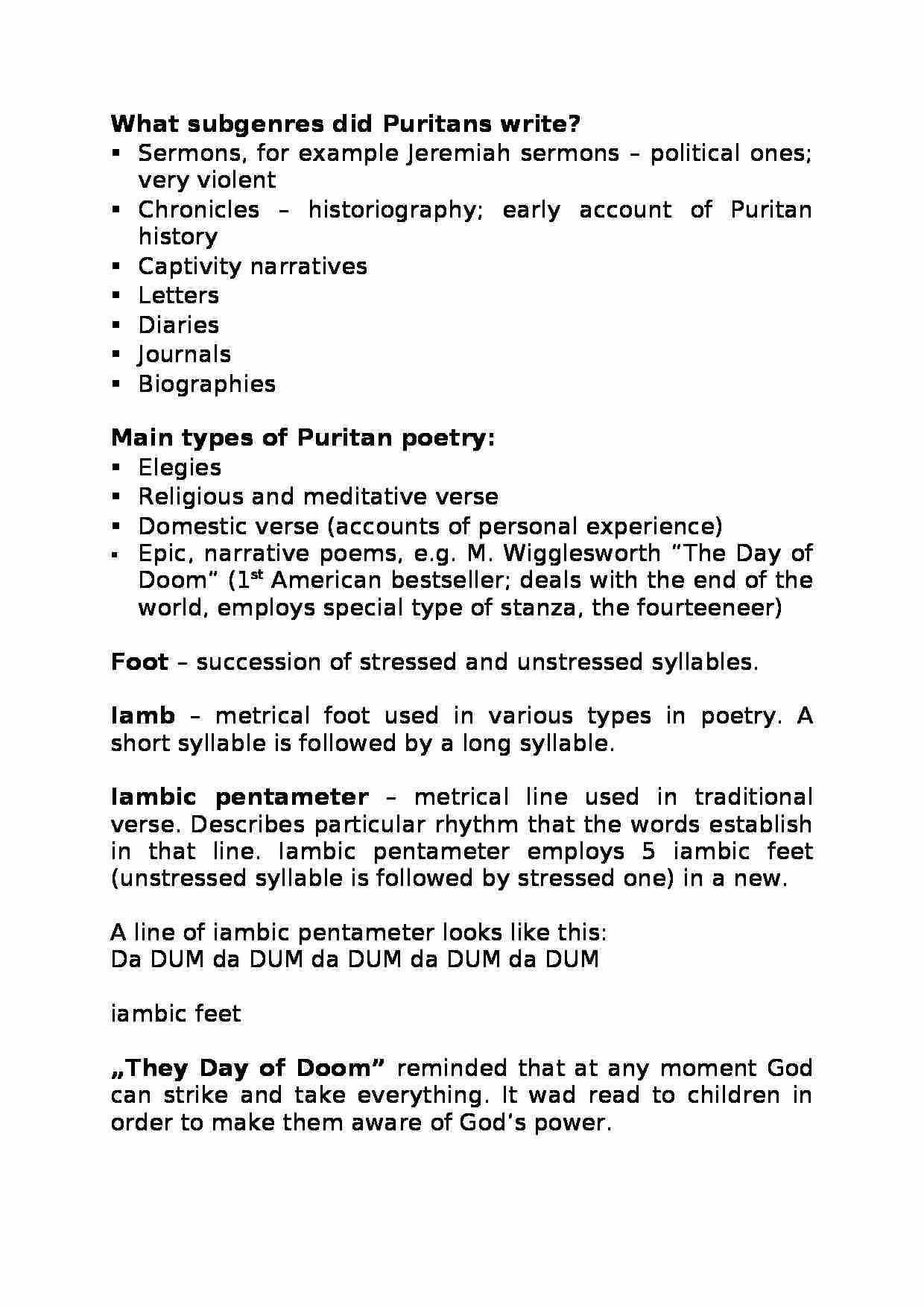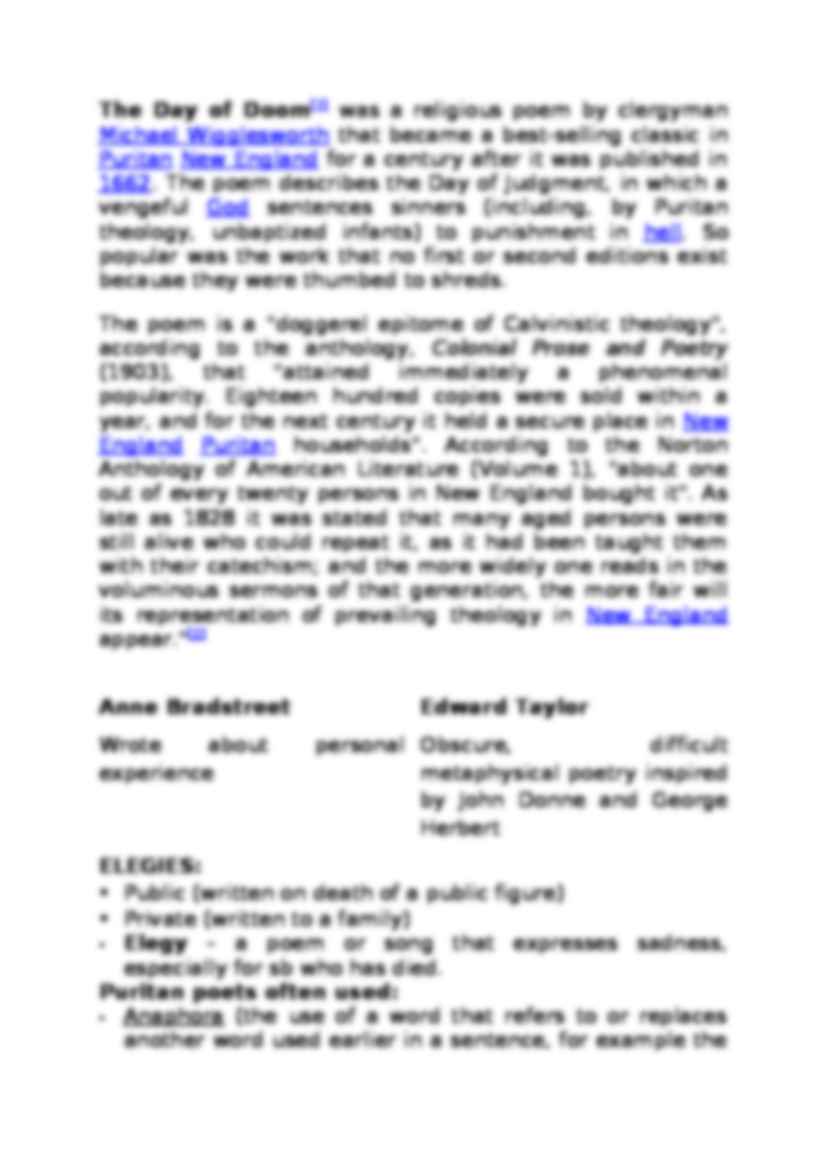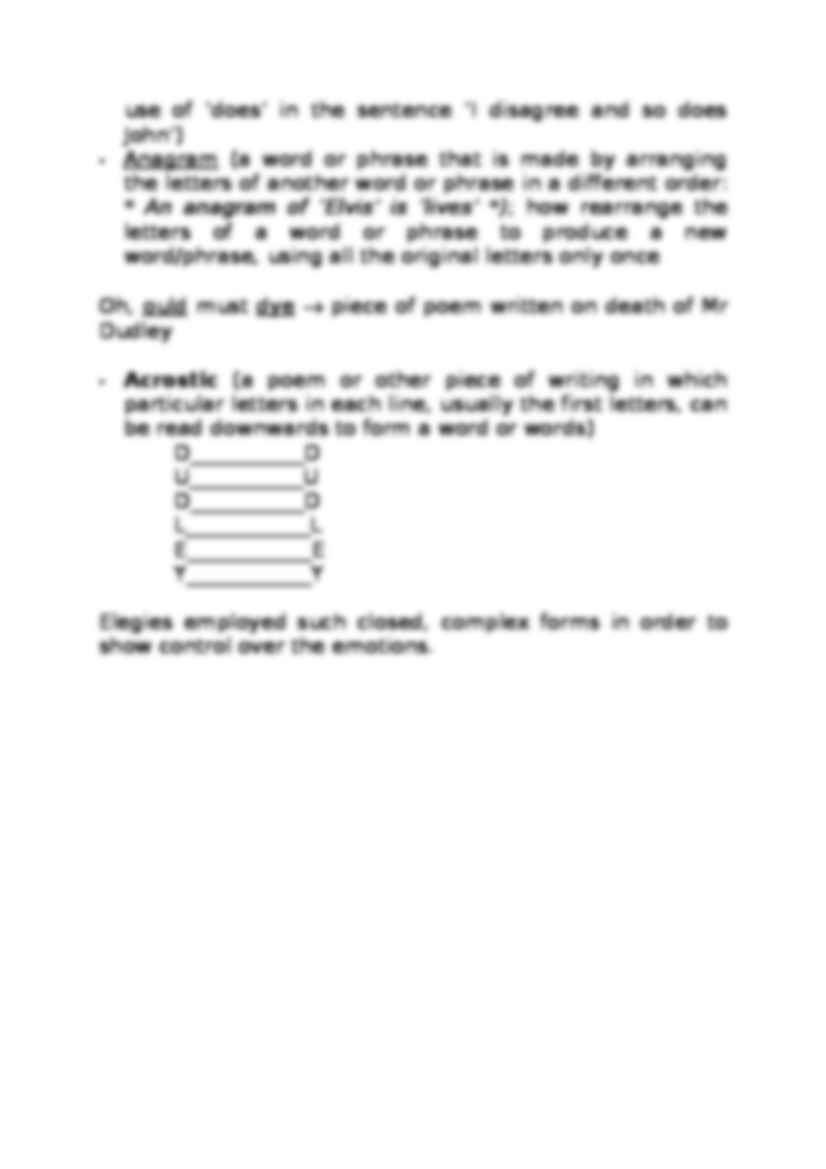To tylko jedna z 3 stron tej notatki. Zaloguj się aby zobaczyć ten dokument.
Zobacz
całą notatkę



What subgenres did Puritans write?
Sermons, for example Jeremiah sermons - political ones; very violent
Chronicles - historiography; early account of Puritan history
Captivity narratives
Letters
Diaries
Journals
Biographies
Main types of Puritan poetry:
Elegies
Religious and meditative verse
Domestic verse (accounts of personal experience)
Epic, narrative poems, e.g. M. Wigglesworth “The Day of Doom” (1st American bestseller; deals with the end of the world, employs special type of stanza, the fourteeneer)
Foot - succession of stressed and unstressed syllables.
Iamb - metrical foot used in various types in poetry. A short syllable is followed by a long syllable.
Iambic pentameter - metrical line used in traditional verse. Describes particular rhythm that the words establish in that line. Iambic pentameter employs 5 iambic feet (unstressed syllable is followed by stressed one) in a new.
A line of iambic pentameter looks like this:
Da DUM da DUM da DUM da DUM da DUM
iambic feet
„They Day of Doom” reminded that at any moment God can strike and take everything. It wad read to children in order to make them aware of God's power.
The Day of Doom[1] was a religious poem by clergyman Michael Wigglesworth that became a best-selling classic in Puritan New England for a century after it was published in 1662. The poem describes the Day of Judgment, in which a vengeful God sentences sinners (including, by Puritan theology, unbaptized infants) to punishment in hell. So popular was the work that no first or second editions exist because they were thumbed to shreds.
The poem is a "doggerel epitome of Calvinistic theology", according to the anthology, Colonial Prose and Poetry (1903), that "attained immediately a phenomenal popularity. Eighteen hundred copies were sold within a year, and for the next century it held a secure place in New England Puritan households". According to the Norton Anthology of American Literature (Volume 1), "about one out of every twenty persons in New England bought it". As late as 1828 it was stated that many aged persons were still alive who could repeat it, as it had been taught them with their catechism; and the more widely one reads in the voluminous sermons of that generation, the more fair will its representation of prevailing theology in New England appear."[2]
Anne Bradstreet
Edward Taylor
Wrote about personal experience
Obscure, difficult metaphysical poetry inspired by John Donne and George Herbert
ELEGIES:
Public (written on death of a public figure)
(…)
…') Anagram (a word or phrase that is made by arranging the letters of another word or phrase in a different order: * An anagram of `Elvis' is `lives' *); how rearrange the letters of a word or phrase to produce a new word/phrase, using all the original letters only once
Oh, ould must dye → piece of poem written on death of Mr Dudley
Acrostic (a poem or other piece of writing in which particular letters in…
... zobacz całą notatkę






Komentarze użytkowników (0)